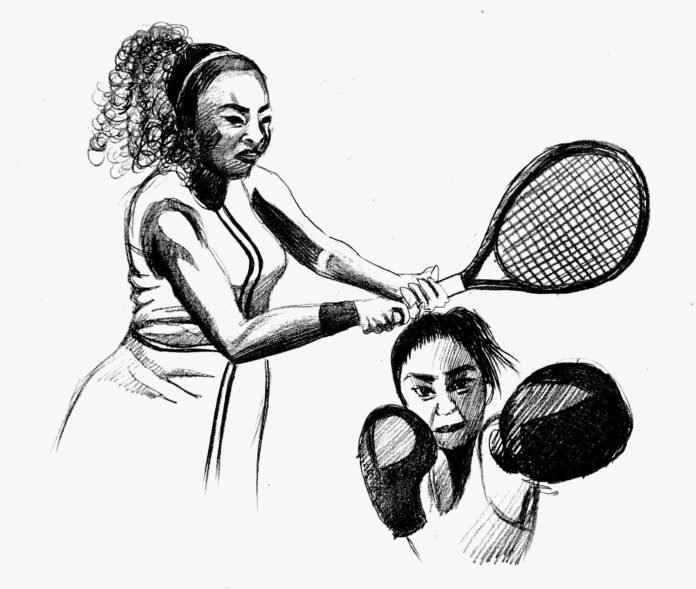Now that it’s Women’s History Month, it’s important to recognize the women who fought for our rights –– especially our right to play sports. Some of the most influential women in sports history were those who influenced the implementation of Title IX in 1972, which encouraged a 545 percent increase in women playing college sports. I recognize my position as a current non-athlete, but I also recognize my position as a woman moved by the seven female athletes I live with. I see firsthand the work they put in, the motivation they have, the hours they clock, and their love for the game and for each other. Some call female athletes “crazy” because they find their success threatening or unfeminine. However, female athletes have reclaimed the term to describe the boundary-breaking nature of their achievements. If simply being a successful woman is “crazy,” these athletes show that we should all aspire to be “crazy.”
I stand with the most recent Nike advertisement called “Dream Crazier,” in which female athletes of color challenge societal expectations by showing all of their “crazy” successes. The video first shows how society views women as too emotional, and how their meltdowns are “hysterical,” “delusional,” “nuts” and “irrational.” Then, Nike edits clips together to show that it’s actually beautiful to be a “crazy” woman: these women are not afraid of societal expectations and instead strive to reach their fullest potential. Men resort to calling women “crazy” when they see them as threats, but Nike reclaims the word, using it to refer to women’s emotion, anger and strength.
The concept of craziness or, more specifically, “hysteria,” originated from the definition of mental instability. “Hysteria” means “womb” in Greek. Throughout history, it was also the term for a mental condition exclusively for women. According to feminist scholar Elaine Showalter, “Any emotional display beyond the fairly tight boundaries of what was acceptable could be called hysteria.” Showalter claims that the media politicized the word “hysteria” around 1890 during the start of the suffrage movement. It was used against women who wanted university entry and women who spoke publicly; critics were supposedly concerned that they would “overwork” their brains. So when, for example, Serena Williams got angry about cheating accusations and showed her raw emotions at a match, she probably would have been “diagnosed” with hysteria.
Women of color break records that sexist skeptics never thought possible. The Nike ad shows Lisa Leslie dunking a basketball, a masculinized concept (according to one misguided op-ed, “no one wants to see women play the game the way that men do”). Leslie was actually the first WNBA player to win the regular season MVP, the All-Star Game MVP and the playoff MVP all in the same season. That is crazy — most male basketball players have never won any of those awards in their athletic careers. Ibitihaj Muhammad, also featured in the ad, is the first Muslim woman to wear a hijab at the Olympics and the first Muslim-American woman to win an Olympic medal. Serena Williams defines her own crazy as winning 23 grand slam titles, having a baby and then coming back to absolutely killing it on the court. Some people might call athletes like Leslie, Muhammad and Williams “crazy” because they’re threatened by the success of these female athletes. These women are “crazy” because of their resilience, not their weakness as women.
The Nike ad shows that women have taken this originally negative term back, just as other negative words are taken back by various communities. The women of color in the Nike ad, such as snowboarder Chloe Kim and gymnast Simone Biles, prove exactly how their femininity has encouraged them to achieve success as female athletes. Their records, not the women themselves, are crazy. In a society that once called women mentally unstable, their athletic achievements are unbelievable.
This is to the female athletes who show their “crazy” by fighting every day for their right to have equal opportunity in sports. This is to the people who told me I “throw like a girl” or that I’m too “feminine” to be an athlete: feminine women have become world-renowned athletes, so the joke is on you. This is to the women and girls being told they are too “crazy” to thrive in sports. To all of my women out there, keep showing them what us “crazy” women do.
Serena Pelenghian is a sophomore Critical Theory & Social Justice major. She can be reached at spelenghian@oxy.edu.
![]()































